Scientists - Interview
by John Clarkson
published: 18 / 5 / 2007
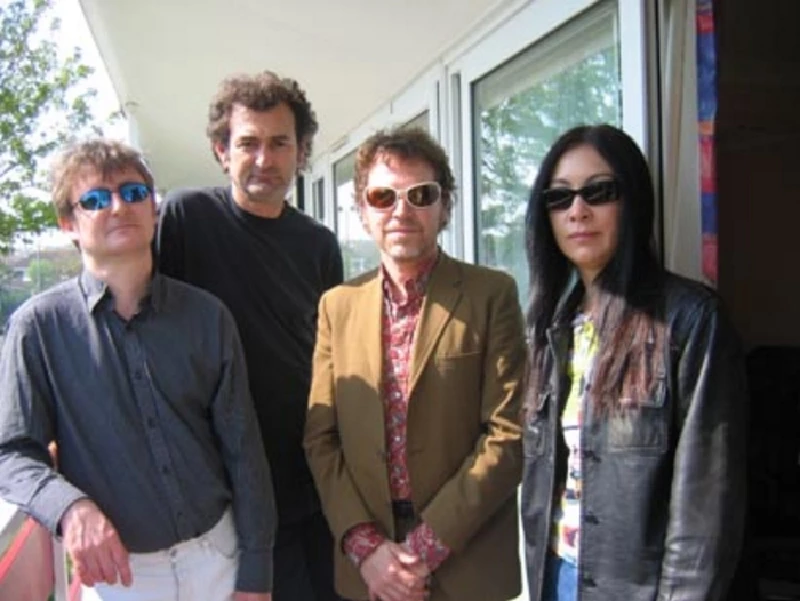
intro
Under-rated at the time 80's post punk group the Scientists were an influence on bands such as Mudhoney, Nirvana and the White Stripes.John Clarkson speaks to front man Kim Salmon about the group's recent reformation and continued impact
The Scientists were essentially two different bands. The first version of the Scientists formed in Perth in Western Australia in May 1978 and went through various permutations, with guitarist and singer Kim Salmon and drummer James Baker remaining together as a permanent factor in its several different line-ups. It fused together elements of the predominantly American influences of the Ramones, the New York Dolls and the Stooges, and released a posthumous self-titled debut album on a local label, Have Records, in August 1981. The second version of the Scientists formed in Sydney in September 1981 10 months after the original band had broken up in January of that year. This group, which finally broke up in November 1987, too went through frequent line-up changes, but with this time Salmon again and guitarist Tony Thewlis serving as a consistent link. Bassist, Boris Sudjovic, who had also played with the first band in 1978, was a member of the second group from its inception until 1985. Both Brett Rixon (who died of a heroin overdose on December 26th 1993) and Leanne Chock, who was one of the several musicians who replaced him, were this latter band’s two most regular drummers. While the first version of the Scientists played music fairly typical of the era, the second group’s music was far more intriguing, and, a curious, warped hybrid of the blues, punk and psychedelia, merged together a droning, menacing sound with primitive and tribal beats. The band spent three years in London between March 1984 and April 1987 and released a five song mini album, ‘This Heart Doesn’t Run on Blood, This Heart Doesn’t Run on Love’ (All Go Go Records), in November 1984. It followed this with both a full-length album ‘You Got What You Deserve !’ (Kartel Records', in August 1985 and then a compilation album, ‘Heading For a Trauma’ (All Go Go Records), in November of that year. A second compilation, ‘Weird Love’, came out in October 1986, and a final mini album, ‘The Human Jukebox’ (both Kartel), in April 1987. While the Scientists were overlooked in their original lifetime, as a result of both their frequent line-up changes and contractual problems with All Go Go Records muting their impact, they were a strong influence on the grunge movement. Bands such as Mudhoney, Nirvana and the White Stripes have all cited them as a reference, and they began to go through a revival of fortunes in 2001 after Citadel Records released a Scientists compilation, ‘Blood Red River 1982-1984’, to good reviews and strong sales. Two other Citadel compilations, ‘The Human Jukebox 1984-1986’ and ‘Pissed on Another Planet 1980-1982’, followed suit in 2002 and 2004 respectively. The Scientists, with a line-up of Salmon, Thewlis, Sudjovic and Choke, reformed to play the Mudhoney-curated All Tomorrow’s Parties Festival last year, and also played support to the Seattle-rockers at the Shepherd’s Bush Empire in London, a recording of which was released as a live album, ‘Sedition’, this April. The group played All Tomorrow’s Parties , this time curated by fellow Australians the Dirty Three, again in May and also a brief short, low-key tour of Europe. Pennyblackmusic spoke to Kim Salmon before a gig at the Spitz in London about the Scientists’ resurgence and continued impact. PB : You began your musical career by playing in one of the very first punk bands in Perth, the Cheap Nasties. Who were they ? KS : It was in fact the very first punk band in Perth that I know of. I started it by drafting my friends into it at the beginning of 1976. I didn't even know what punk rock sounded like. I had read this article about CBGB's which had vivid descriptions of all these bands that were coming out of back alleys with leather jackets and which had members with names like Johnny Thunders. The idea of punk completely captivated me and so the first thing I did was start my own punk band with absolutely no knowledge of what punk was (Laughs). PB : Did you sound anything like a punk rock act ? KS : When we started we sounded a bit glammy and a bit metal, and a bit Pixie-ish as well. Then as the months went by I acquired a Modern Lovers album, and a Velvet Underground and a Dolls album, and then a Stooges album, and incorporated that into the sound a bit. Then punk records, things like the Ramones, arrived in my local record store and that modified the sound further. PB : How long did the Cheap Nasties last for ? KS : It lasted for about one and a half years. PB : How were you received ? Australia was notoriously quite a conservative place at that time. KS : I remember an early show -It was in fact the show in which I met Boris who became the Scientists' bass player- where I looked down at the bottom of my microphone stand at the end of the night and there was this little pile of broken glass there (Laughs). That probably gives you the basic idea. We weren’t popular. PB : After that you formed the Scientists. The first version of the band went through various permutations but featured throughout yourself and the drummer James Baker. Is it true that he used to write all the lyrics originally ? KS : Yeah, he wrote the lyrics, and a little bit later our latter bass player Ian Sharples also helped out. Basically James, however, wrote the lyrics and I wrote the music around them. PB : At what point did you start lyric writing ? KS : After that band broke up in Perth through neglect. Perth neglected us (Laughs). What happened was I was persuaded to start up the band again, but this time in Sydney by Boris who was already living there and who thought we would do a bomb over there as long as we had him back in the band. I asked James if he wanted to join up with us as he had already moved to Sydney by that stage, but he had joined the Hooded Gurus and wasn't available, so we got Brett Rixon in on drums instead. Then we got Tony Thewlis in on guitar as well and formed in Sydney without ever have played together. Tony, Brett and I all moved there on pure blind faith. We were going to change our name and be a new band, but we couldn't think of a better name than the Scientists. We grabbed a few songs from Louie Louie, the band Brett and I had been playing with after the original Scientists had broken up, but we needed more lyrics. Nobody was doing that, so it fell down to me as the singer. I was able to write the kind of lyrics upon which I could hang the more dark and primitive style that I had wanted to do all along. It was not that I was dissatisfied with the early side of our music because I had enjoyed that, but what I wanted to do was something a little bit darker. The first group was far more poppy. PB : Where did that interest in experimentation and darkness come from ? KS : From bands like Television and the Velvet Underground. PB : So a lot of this interest came from hearing these bands that you would have read about five or six years before that and had only heard latterly. KS : Yes, definitely. A lot of the post-punk bands, such as the Gang of Four,had also begun to take off, and they were also a big influence. The Cramps were another huge influence. They were far more than just a rockabilly band. They were kind of unhinged as well, and we found that immensely appealing. They had a lot going on there. With the Stooges there was an aspect of free jazz and experimentalism going on in that music as well, and we incorporated some of that too into our sound. PB : A lot of the lyrics you wrote at that time were about getting drunk, taking drugs, driving around in suburbia and feeling pretty paranoid. Were you just writing about yourself and being young ? KS : Yeah. I didn't know what else to write about. People think of 'Swampland', for example, as a blues delta and a swamp rock song, but I see it as an urban song about a young punk rocker wishing that he was somewhere exotic. For me 'Swampland' comes out of a punk environment really. Some of the nicks on it give it a Southern flavour, but really if you listen to the bass and the beat it is totally punk. PB : You moved to Britain in 1984. A lot of bands at that stage were beginning to exodus from Australia to Britain. The Triffids had gone over. The Birthday Party had gone over. Were you just following suit and thinking "These bands are taking off over there. We should do that" ? KS : No, it wasn't the case at all. I would have stayed put in Sydney if I had had my way. We were actually starting to make in roads outside the inner city of Sydney and playing beach suburbs and getting good crowds which was an indicator that something was happening. Our drummer Brett Rixon, who was a very lost sort of soul -I don't think he knew what he really wanted- was starting to get disillusioned. He wanted something to happen, some catalyst to make things work for him and he decided we needed to do something like leave the country and go elsewhere. As drums were such an integral part of what we did, rather than try and get a new drummer and try and make him sit down and work out what the beats were, we thought "Let's keep him happy. Let's just go along with him and say that we have gone as far as we can in Austalia and go elsewhere." In actual fact I think we would have been able to continue to handle life in Australia. A lot of our peers, Die Pretty, the Hooded Gurus and the Celibate Rifles, went on do do well. We were ahead of those bands, with the exception of the Hooded Gurus, in popularity up until then. They, however, took over from us after we left. PB : You came over to Britain but then Brett Rixon ended up leaving the band anyway in February 1985. KS : That was because he didn't know what he wanted. He was never really happy in the Scientists. There were lots of reasons why he left and we never did get to the bottom of it, but I think basically, as I said, it was because he was a lost soul. PB : You had a particularly spectacular year when you first came over to Britain. You toured with the Gun Club, the Sisters of Mercy and Siouxsie and the Banshees. Was there a stage when you thought "Well, we're onto a good thing here. We might actually break through to the big time" ? KS : We did, but we lost our drummer and also had a dispute with our record label at the same time so that ensured that whatever might have happened didn't(Laughs). We had our hands tied basically. It was really frustrating. PB : The original line-up of the Scientists released a self-titled debut CD in 1981. Then in 1985 you released both a second album, 'You Got What You Deserve', and also a compilation 'Heading for Trauma'. KS : The compilation wasn't down to us. That was All Go Go Records, the record label we were having a dispute with. They were part of Rough Trade. We had got fed up with them and split off and formed our own label Kartel, which was run by our manager. We put out 'You Get What You Deserve' but every time we put out a release All Go Go Records would put out something as well, so everything we sold was effectively halved. We were selling about 6000 of everything, but in fact it was only 3000. It got to the stage where every time we released something we knew that it would bomb. PB : You came back to Australia in 1987 and broke up shortly afterwards. By that stage the band featured yourself, Tony Thewlis, Nick Combe on drums and Brett Rixon had also briefly rejoined on bass. Why did you call it a day ? Were you just burnt out ? KS : We never really called it a day. We never really did split up, but we did disintegrate. It was one of those things which didn't end with a bang. It finished with a whimper. PB : Was your plan always to get back together at some point ? KS : There was no plan. There was nothing really. When the band restarted again with the reissue of the CDs on Citadel Records it met with quite bit of resistance internally. We were all worried that we were going to let ourselves in for more of the same pain by revisiting the past, but it has happened and we've managed to get through that. It's not been painful at all (Laughs). PB : You do pretty well these days. You have maintained a loyal following and also attracted many new fans. Have you been surprised by that ? KS : Yes and no. I always had faith in what we were doing. A lot more thought and engineering went into our music than people credit us for. Our music sounds very primitive and simple, but it took us a lot of time for us to come up with those songs. Our brief wasn't just that songs had to be minimalistic. There had to be a lot of emotion in there at the same time. It became increasingly difficult to do that without repeating ourselves. It was also a lot of work to make it seem simple and remove what is unnecessary. One of the results of that is that some people think they like us because they think we are psychedelic and some people like us because they think we are rockabilly and some people like us because they think we are punks and some people like us because they think we are the blues. We are none of those things specifically. Our music is our own thing, but it also contains all of those things. For those people it is that one thing in particular, however, that really enables them to get into us and then enjoy our music at a much deeper level. I think sometimes it has taken time for people to unearth that and us. They've not been able to unearth us in the most obvious way, and they have had to get into us subconciously or emotionally as well as intellectually. PB : You were invited by Mudhoney to play their day at All Tomorrow's Parties last year. You're back again this year. Was last year the first time the band had played together since splitting ? KS : Yes and no. We had a reformation in 2002 in which we had toured Australia, but we didn't have Leanne Chock playing drums as we do now. We had a different guy. When we got to Sydney, however, on that tour, we got Leanne up to do some songs. We thought that would be a cool thing to do as she hadn't touched a drum kit since she played for us back in the mid 80's. When Brett left was we went through millions of drummers, and some very good ones too. Leanne used to be our tour manager, so she was in the inner sanctum already and she took it upon herself to buy Brett's drum kit. She had watched what he was doing and taught herself to play all his beats, so in a sense when she played for us there was no foreign or muso baggage there. It was only what she had learnt from Brett. It was like we had had a transplant which hadn't rejected because it was so completely natural. What happened was she played three songs at the Sydney show as an encore and the consensus with the audience was that was where the real deal was and that was that way with us too. We thought "It is just like the old days", so we invited her back when we did this reformation tour. PB : How much had you seen of each other between '87 and 2002 when you first got back together ? KS : We had all stayed in touch. If I was in Sydney I would catch up with Boris or Leanne, not every time I was there, but quite often and if I came over here to England, where Tony now lives, I would catch up with him. PB : You're just finishing off your current tour. You have played France and Holland already, and you're in London tonight. You're off to ATP at the weekend. How has that tour been going ? KS : It has been fantastic. It was all done at the last minute, but it has worked out perfectly. Our promoter had strong limitations and he could only get what he could get and so he went for small venues, most of which hold between 60 and 100 people. We have been playing a whole lot of little grassroot gigs. It has been like going back to where we started, and, to use a cliche, quite punk rock. I have really enjoyed it. PB : So what will happen now ? KS : We will all go home and do our own thing. PB : Can you see yourself getting back together again ? KS : Well, it is possible. You can never say never, but you can't make things happen that aren't meant to be. It is hard to say. This is the band that existed when we were all young and we have all changed, and the things that made us what we were then have all also changed. It has been like driving a car or riding a bike after a long absence playing these gigs. It has worked so far because all we have is 1985's memories or our bodies do, and we have played the songs a million times already. I think the longer you do something like this the more time there is for other things, the rest of our lives and our baggage, to creep into it. I think that would possibly compromise the things that made us what we were. It would change, and when you look at reformations that continue they tend not to work because of those reasons, the other things that are brought to it. They are quite aside from the things that made you great in the first place. PB : It has been a pleasure talking to you. Thank you very much for your time.
Band Links:-
https://www.facebook.com/TheScientists/https://en.wikipedia.org/wiki/The_Scientists
Picture Gallery:-
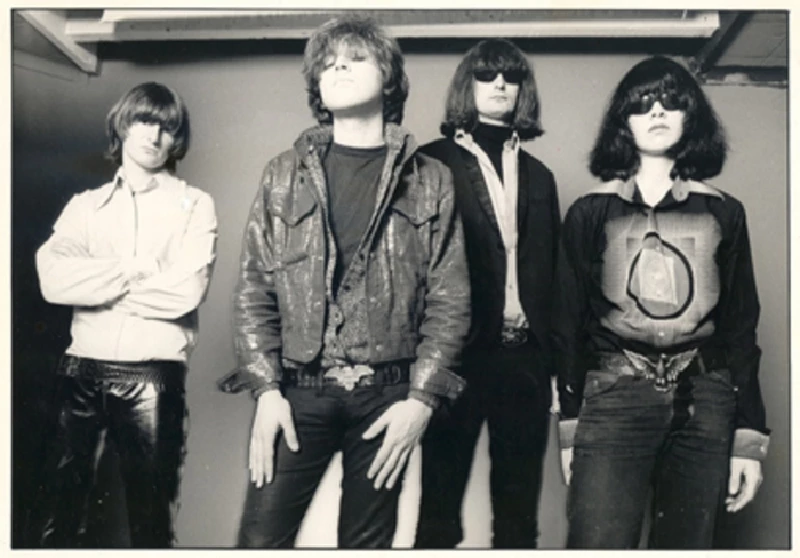
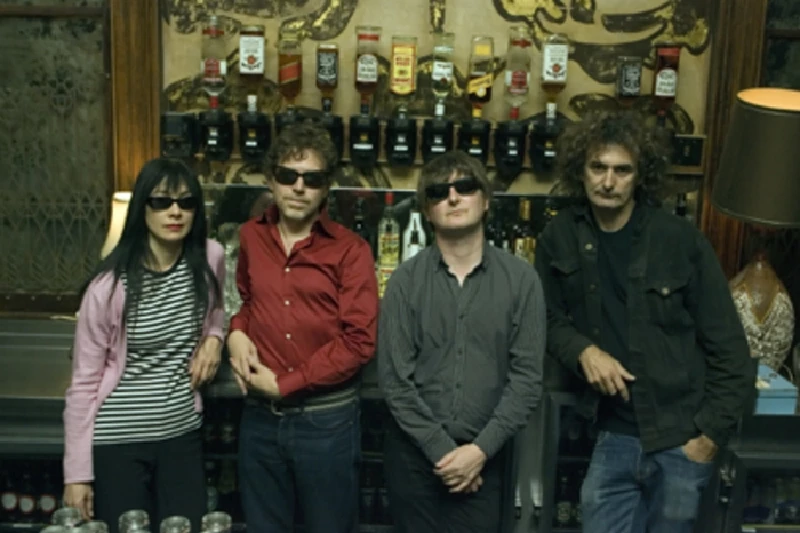
profiles |
|
Profile (2016) |
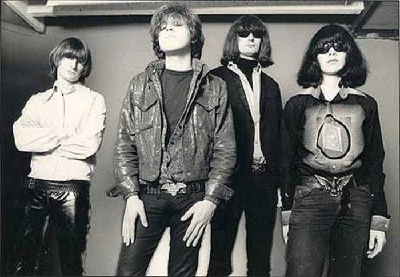
|
| With a new eighty track box set 'A Place Called Bad' having been just released of their music, Erick Mertz examines the immersive career of influential Australian post punks, the Scientists |
live reviews |
|
Spitz, London, 26/4/2007 |

|
| At the Spitz in London, Anthony Strutt is stunned by reformed Australian 80's band the Scientists' blend of Stooges-style punk and feedback-drenched rock 'n' roll |
reviews |
|
Sedition (2007) |
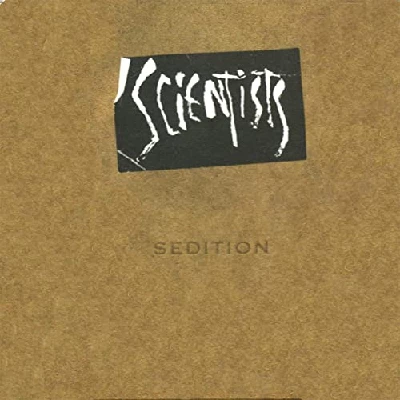
|
| Slightly disappointing live album from influential 80's Australian punks the Scientists, recorded last year at a reformation gig in whicch they supported Mudhoney at the Shepherd's Bush Empire in London |
most viewed articles
current edition
Carl Ewens - David Bowie 1964 to 1982 On Track: Every Album, Every SongArmory Show - Interview with Richard Jobson
Colin Blunstone - Thalia Hall, Chicago, 16/7/2025
Bathers - Photoscapes 1
Visor Fest - Valencia, Spain, 26/9/2025...27/9/2025
John McKay - Interview
Editorial - July 2025
Sir Tim Rice - Interview
Bathers - Photoscapes 2
Billie Eilish - O2 Arena, London, 10/7/2025
previous editions
Heavenly - P.U.N.K. Girl EPManic Street Preachers - (Gig of a Lifetime) Millennium Stadium, Cardiff, December 1999
Oasis - Oasis, Earl's Court, London, 1995
Beautiful South - Ten Songs That Made Me Love...
Trudie Myerscough-Harris - Interview
Pixies - Ten Songs That Made Me Love...
Simon Heavisides - Destiny Stopped Screaming: The Life and Times of Adrian Borland
Doris Brendel - Interview
Paul Clerehugh - Interview
Prolapse - Interview
most viewed reviews
current edition
Amy Macdonald - Is This What You've Been Waiting For?Sick Man of Europe - The Sick Man of Europe
Phew, Erika Kobayashi,, Dieter Moebius - Radium Girls
Alice Cooper - The Revenge of Alice Cooper
Davey Woodward - Mumbo in the Jumbo
Lucy Spraggan - Other Sides of the Moon
Blueboy - 2
Cynthia Erivo - I Forgive You
Lapsley - I'm a Hurricane, I'm a Woman In Love
Philip Jeays - Victoria
related articles |
|
Nathan Hall and the Sinister Locals: Feature (2017 |
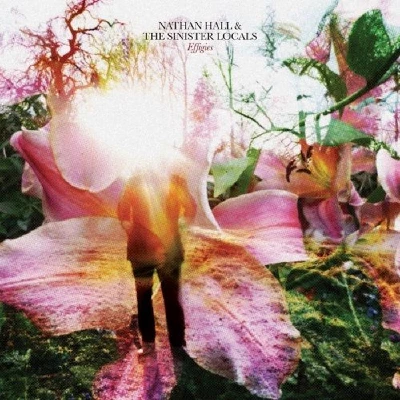
|
| In his 'Under the Radar' column, in which he searches out under-rated artists and labels, Keith How examines Soft Hearted Scientists’ front man Nathan Hall and his new band the Sinister Locals’ first album. |
Pennyblackmusic Regular Contributors
Adrian Janes
Amanda J. Window
Andrew Twambley
Anthony Dhanendran
Benjamin Howarth
Cila Warncke
Daniel Cressey
Darren Aston
Dastardly
Dave Goodwin
Denzil Watson
Dominic B. Simpson
Eoghan Lyng
Fiona Hutchings
Harry Sherriff
Helen Tipping
Jamie Rowland
John Clarkson
Julie Cruickshank
Kimberly Bright
Lisa Torem
Maarten Schiethart